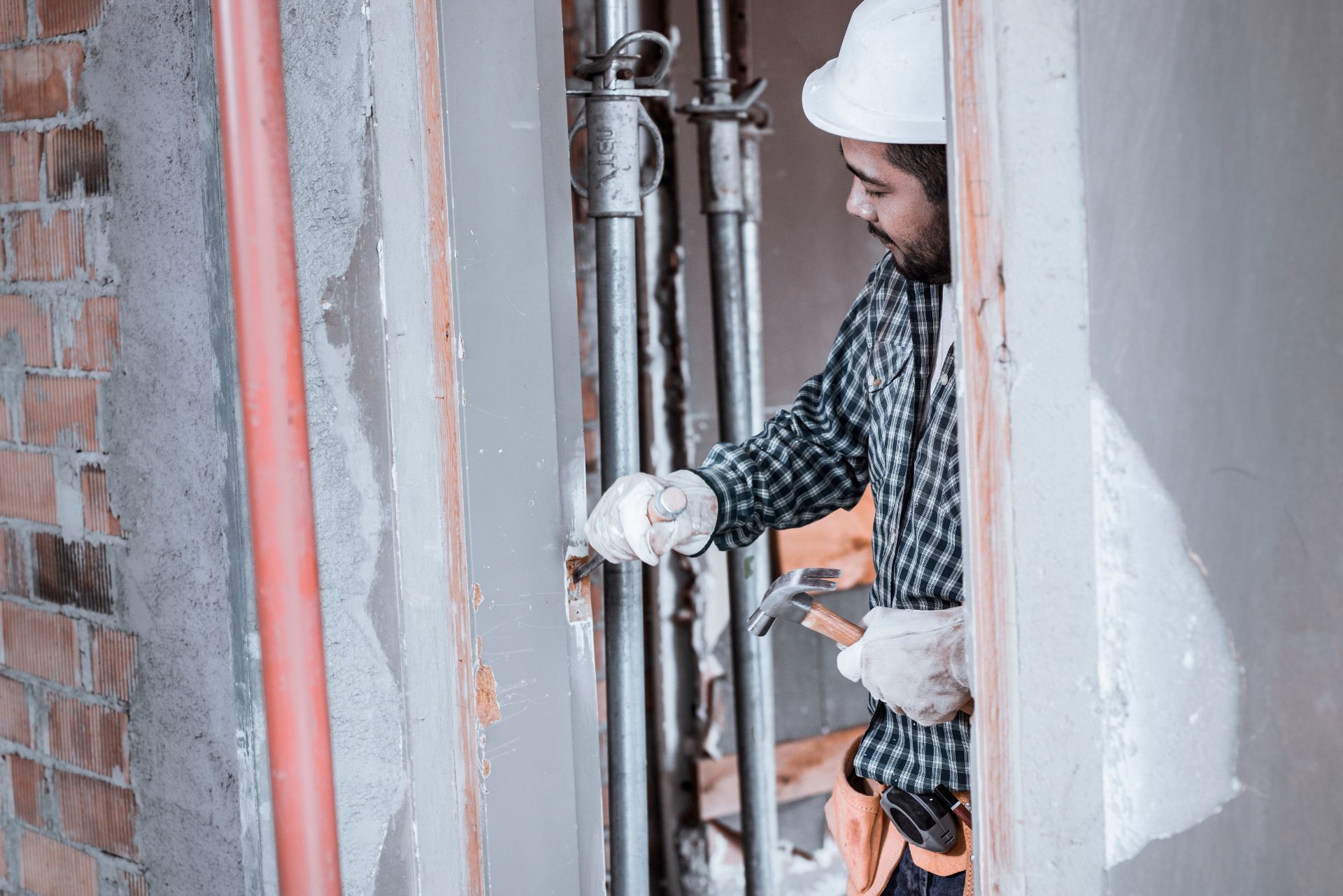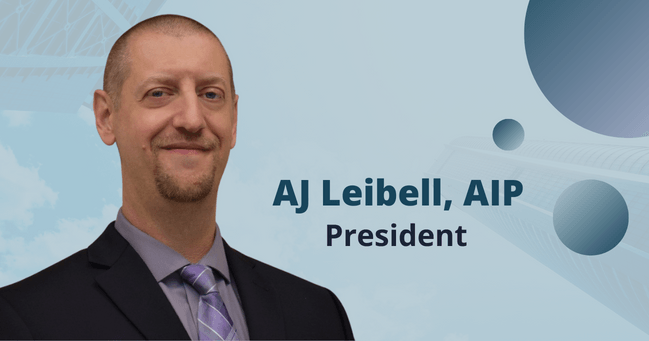Florida Plumbing Contractor Insurance
8:30am - 5:00pm Mon-Fri
Will Reply in 15min*
Top Recommended Business Insurance Policies

Index
Why Insurance Matters for Florida Plumbing Contractors
Core Coverage Types Every Plumbing Contractor Should Consider
Florida-Specific Regulations and Licensing Requirements
Typical Cost Ranges and Premium Drivers
Strategies to Reduce Premiums Without Sacrificing Protection
Common Claims Scenarios and What They Teach
Contact Us
Phone
Location
6900 Tavistock Lakes Blvd, Suite 400, Orlando FL 32827
Florida’s construction sector continues to boom, and plumbing contractors sit right at the heart of that growth. From high-rise condominiums in Miami to historic bungalows in St. Augustine, every new structure relies on safe, reliable plumbing. Yet the same busy workload that fuels revenue also increases exposure to accidents, property damage, and costly litigation. The right insurance program protects a plumbing business from those risks, keeps state regulators satisfied, and, ultimately, safeguards livelihoods. This comprehensive guide walks through the coverage types, state requirements, cost factors, and best practices every Florida plumbing contractor should know.
Why Insurance Matters for Florida Plumbing Contractors
In 2023, Florida recorded more than 95,000 licensed plumbing and mechanical contractors, according to the Department of Business and Professional Regulation (DBPR). With that level of competition, one claim or lawsuit can shut down operations and push customers elsewhere. Insurance is not only a legal requirement but also a strategic tool that protects cash flow, preserves reputation, and wins new business. General contractors and municipal purchasing departments often refuse to hire subcontractors who cannot furnish proof of adequate insurance, so coverage directly influences revenue potential.
Unique Risk Factors in the Sunshine State
Florida’s hot, humid climate accelerates corrosion of pipes and fittings. Add the state’s aging housing stock—roughly 40 % of homes were built before 1980—and plumbing failures become more frequent. Hurricanes compound the risk: wind-driven rain penetrates walls, power outages disable sump pumps, and reconstruction work demands rapid deployment of plumbing crews in hazardous conditions. These factors create a higher baseline of claims than in many inland states, pushing premiums higher and making tailored coverage essential. Additionally, the prevalence of sinkholes in certain areas of Florida adds another layer of complexity, as plumbing systems can be severely affected by ground instability. Contractors must be prepared for the unexpected, ensuring they have the right insurance policies to mitigate these unique risks.
Legal Obligations and Client Expectations
State law requires workers’ compensation for businesses with at least one employee, and many local jurisdictions mandate
general liability limits of $1 million per occurrence. Property managers and commercial builders may insist on umbrella limits of $2–5 million. Lacking proof means lost contracts—and sometimes suspension of a professional license. In short, insurance is as fundamental as a pipe wrench in every Florida plumber’s toolkit. Furthermore, the competitive landscape means that having comprehensive insurance can serve as a differentiator in marketing efforts. Clients are increasingly savvy and often conduct due diligence before hiring, making it crucial for contractors to showcase their insurance credentials as a mark of professionalism and reliability. This not only helps in securing contracts but also fosters trust and long-term relationships with clients, which are vital in a service-driven industry.

Core Coverage Types Every Plumbing Contractor Should Consider
General Liability Insurance
General liability (GL) covers bodily injury and property damage a plumbing operation might cause to third parties. Picture a water line burst that ruins a homeowner’s hardwood floors, or a soldering torch that sparks a small attic fire—GL pays repair costs, medical bills, legal defense, and judgments. In Florida, most plumbing contractors buy at least $1 million per occurrence and $2 million aggregate, though complexes and high-rise projects often require double those amounts. Additionally, GL insurance can also protect against claims of slander or libel, which, while less common in the plumbing industry, can arise from disputes with clients or other contractors. This comprehensive coverage ensures that plumbing businesses can operate with peace of mind, knowing they are protected against a range of potential liabilities that could threaten their financial stability.
Workers’ Compensation
Even experienced plumbers can slip on wet tiles or suffer heat stroke in a cramped attic during August. Workers’ compensation (WC) pays for medical care, lost wages, and rehabilitation. Florida law mandates WC for all construction businesses with one or more employees, and penalties for non-compliance can reach $1000 per day plus a stop-work order. Carriers calculate premiums using class code 5183 (plumbing) and the contractor’s payroll, claims history, and safety programs. Moreover, investing in a robust safety training program can help reduce claims and lower premiums over time. Many contractors also find that a strong safety record not only benefits their bottom line but also enhances their reputation, making them more attractive to potential clients who prioritize safety and reliability in their service providers.
Commercial Auto Insurance
Service vans haul copper pipe, water heaters, and specialized tools to job sites across sprawling metro areas. Florida ranks among the top five states for auto accident frequency, propelled by heavy tourism traffic and dense urban corridors. Commercial auto insurance covers liability and, if chosen, physical damage to the vehicle. Many carriers offer inland marine endorsements that extend equipment coverage while tools are in transit—a valuable add-on for plumbers hauling expensive jetters and video inspection gear. Additionally, some policies may provide coverage for rental vehicles if a contractor’s primary vehicle is in the shop for repairs. This flexibility can be crucial for maintaining service continuity and ensuring that plumbing operations are not disrupted, even in the face of unforeseen vehicle issues.
Inland Marine (Tools & Equipment) Coverage
Standard property insurance only protects tools at a scheduled location, but plumbers work everywhere: crawl spaces, high rises, grocery stores—you name it. Inland marine, often branded “contractor’s equipment” or “tools floater,” travels with those assets. It covers theft from a van, damage at a job site, or loss from overturning a pipe rack. Contractors typically schedule items over $2500 individually and blanket smaller tools under a per-occurrence limit. This type of coverage is particularly important for plumbing contractors who invest heavily in specialized equipment, as the loss of a single tool can significantly impact their ability to complete projects on time. Furthermore, some policies may even cover tools that are lost or damaged during transport, providing an extra layer of security for contractors who frequently move between job sites.
Professional & Pollution Liability
Incorrect pipe sizing, flawed design advice, or failure to install backflow prevention can lead to contamination and code violations. Professional liability (sometimes called “errors & omissions”) addresses claims arising from design or consulting work, while pollution liability covers sudden or gradual release of contaminants, such as sewage backup into groundwater. Both coverages are increasingly requested on municipal bids and large commercial projects in Florida. As environmental regulations become more stringent, having pollution liability insurance is not just a safeguard; it is often a requirement for securing contracts with government entities. Additionally, plumbing contractors who engage in green building practices or work with environmentally sensitive projects may find that these coverages not only protect their business but also enhance their marketability to eco-conscious clients seeking responsible service providers.
Florida-Specific Regulations and Licensing Requirements
Understanding state law prevents fines and delays. The Construction Industry Licensing Board (CILB) oversees plumbing contractor licensing, and insurance is central to that oversight. Applicants must show proof of:
- General liability: at least $100,000 per occurrence and $300,000 aggregate, though local authorities often require higher limits.
- Property damage: $25,000 minimum, usually bundled into the GL policy.
- Workers’ compensation: certificate of compliance or exemption for officers if no employees.
County and Municipal Variations
Miami-Dade, Broward, and Palm Beach counties maintain their own additional bonding and insurance criteria for plumbing contractors. For example, Miami-Dade often asks for $2 million GL limits on public projects, plus a specialty license bond of $20,000. Ignoring these localized rules risks bid rejection after investing time and resources preparing proposals. Furthermore, contractors should be aware that these regulations can change frequently, necessitating regular reviews of local ordinances to ensure compliance. Engaging with local trade associations can provide valuable insights and updates regarding any shifts in requirements, which can be crucial for maintaining competitive advantage in the market.
Certificates of Insurance and Just-in-Time Compliance
Large builders in Florida frequently use automated certificate tracking platforms that email cancellation notices directly to risk managers. A lapsed policy can trigger an immediate suspension from the project roster. Staying ahead of renewal dates—and keeping endorsements like primary & non-contributory wording current—protects income streams and professional credibility. Additionally, contractors should consider the benefits of maintaining a robust relationship with their insurance agents, who can offer tailored advice on policy adjustments and risk management strategies. This proactive approach not only mitigates potential liabilities but also enhances the contractor's reputation among clients and partners, fostering trust and long-term business relationships in a competitive industry.
Typical Cost Ranges and Premium Drivers
Insurance prices vary widely, but recent market data provides helpful benchmarks. In 2024, a small, three-person plumbing outfit in Tallahassee might pay:
- $2,200–$4,000 annually for $1 million / $2 million GL
- $3,500–$7,000 for workers’ comp on $150,000 payroll
- $1,800–$3,000 per van for commercial auto, depending on driving records
- $600–$1,200 for a $25,000 inland marine schedule
Key Rating Factors
Carriers scrutinize loss history above all else. A single water damage claim over $50,000 can double GL premiums for three to five years. Payroll size, the ratio of residential to commercial work, and the geographic area—coastal versus inland—also shift rates. Coastal contractors face higher windstorm exposure, leading to larger deductibles and surcharges.
Market Conditions and Carrier Appetite
Florida’s property insurance market tightened after the 2022 hurricane season, and casualty lines felt residual pressure. Some national carriers reduced appetite for construction trades, while regional mutuals filled the gap. Working with a broker familiar with plumbing contractors ensures access to the most competitive underwriters willing to quote the trade.

Strategies to Reduce Premiums Without Sacrificing Protection
Invest in Safety and Training
The National Institute for Occupational Safety and Health reports that slips, trips, and falls account for 22 % of construction injuries. Implementing mandatory ladder safety training, requiring non-skid footwear, and installing lift-assist devices for water heaters show insurers a proactive stance. Carriers often extend 5–15 % credits for documented safety programs and participation in the state’s drug-free workplace program.
Bundle Lines and Raise Deductibles (Carefully)
Packaging GL, WC, and commercial auto with one carrier usually yields multi-policy discounts. However, raising property deductibles must align with cash reserves; an elevated $5,000 deductible makes sense only if the business can absorb that out-of-pocket expense without affecting payroll.
Track Vehicles with Telematics
GPS and telematics devices monitor speed, braking, and idle time. Studies from the Insurance Information Institute indicate fleets using telematics see 35 % fewer at-fault accidents. Insurers reward this drop in frequency with premium reductions and, in some cases, waive physical damage deductibles for vehicles equipped with approved units.
Common Claims Scenarios and What They Teach
Kitchen Remodel Gone Wrong
During a condo renovation in Sarasota, a plumber installed a dishwasher supply line but failed to fully tighten a compression fitting. Forty-eight hours later, the connection separated, flooding two floors and causing $180,000 in damage. General liability covered repairs, but the contractor faced a $2,500 deductible and months of reputational repair work. Post-incident analysis prompted adoption of a two-step verification checklist and mandatory pressure testing before leaving any site.
Heat Stress Injury on a Commercial Roof
An apprentice installing rooftop condensate drains in Fort Lauderdale collapsed from heat exhaustion, requiring hospitalization and six weeks of recovery. Workers’ compensation paid medical expenses and disability benefits. The employer’s experience modification factor rose from 0.96 to 1.17, translating to about $4,000 in additional WC premiums for the next policy term. Implementing shaded rest stations and mandatory hydration breaks now form part of daily jobsite protocol.
Tool Theft from Unlocked Van
While stopping for lunch in Orlando, a plumber left a service van unlocked. Thieves grabbed power threaders, a press tool kit, and copper fittings worth $9,700. Inland marine insurance reimbursed after depreciation, but the contractor still spent valuable hours sourcing replacements. The incident led to investment in van partition locks and an inventory tracking app that syncs to QR-coded tool tags.
Choosing the Right Insurance Partner
Cost is important, but claims handling and construction expertise matter more. Seasoned brokers know which carriers hire adjusters fluent in construction terminology and Florida Building Code nuances. Seek an agent who:
- Provides multiple quotes and explains coverage differences plainly
- Offers annual risk reviews that align insurance with growth projections
- Assists with OSHA logs, safety manuals, and experience mod audits
- Has in-state authority to issue certificates within minutes, not days
Questions to Ask Prospective Brokers
“How many plumbing contractors of similar size do you insure?” and “What’s your average turnaround time for endorsement requests?” quickly separate specialists from generalists. Also, ask for sample service timelines—quality agencies track renewal milestones and maintain binder systems to prevent dreaded coverage gaps.
Red Flags to Avoid
A broker pushing minimum statutory limits, ignoring additional insured or primary wording, or glossing over pollution exclusions signals potential trouble. These omissions often surface only after a loss, when the financial stakes are highest.
Frequently Asked Questions
Is a surety bond the same as insurance?
No. A surety bond guarantees performance or code compliance to a project owner or municipality, while insurance protects the contractor’s balance sheet from covered losses. Many Florida jurisdictions require both.
What if a plumbing business uses subcontractors?
Always secure certificates verifying that subs carry equal or greater limits and list the hiring contractor as additional insured. Failure to do so can shift liability upstream if a subcontractor causes damage without adequate coverage.
Does personal auto insurance cover a work van?
Generally not. Personal auto policies exclude vehicles used primarily for business, especially those titled to an LLC or corporation. A dedicated commercial auto policy is essential.
How often should coverage limits be reviewed?
At least annually or whenever bidding on larger projects. Inflation, material costs, and labor rates rise quickly; limits adequate three years ago may fall short today.
Final Thoughts
The plumbing profession has changed dramatically with advancements in PEX piping, tankless water heaters, and high-tech leak detection, yet the core risks—water damage, bodily injury, and expensive tools on the move—remain constant. Florida’s weather, regulatory environment, and bustling construction pipeline amplify those risks. A carefully structured insurance program, backed by a knowledgeable broker, empowers plumbing contractors to seize growth opportunities while sleeping soundly at night. Protect the business, protect the crew, and let the pipes keep flowing.








